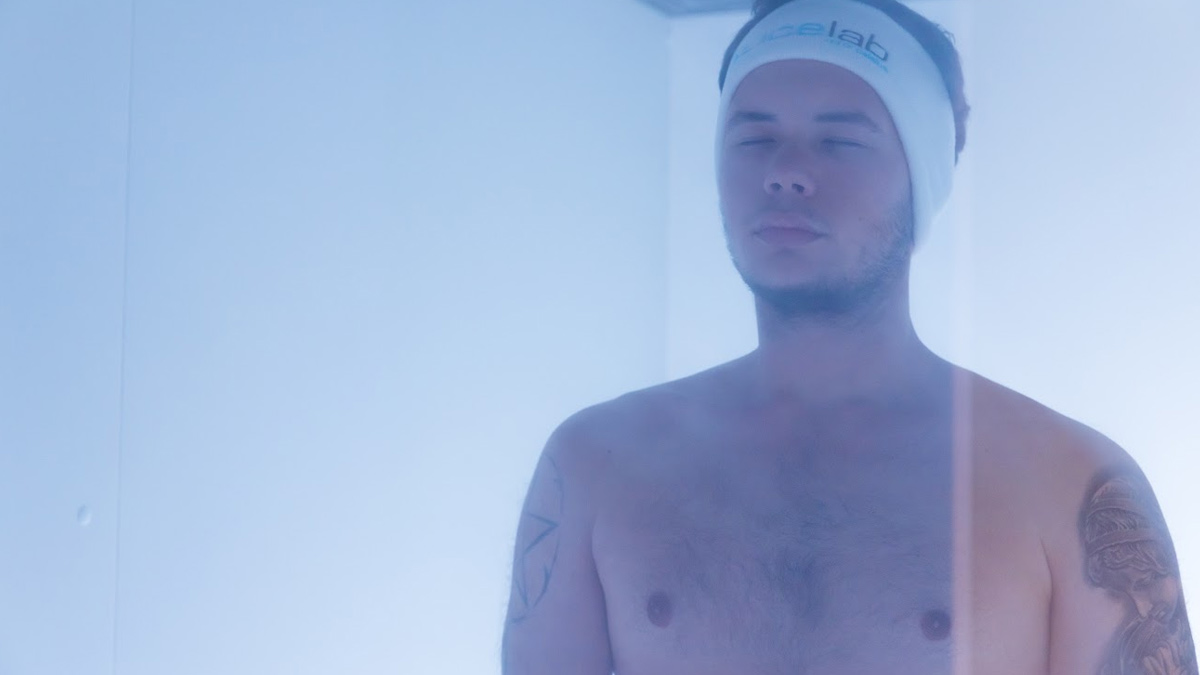
Have you ever come across videos of people submerging themselves in ice-filled baths, often as part of fitness challenges or wellness routines? This practice known as cryotherapy is a treatment that utilises cold temperatures to achieve various health benefits. It can be applied locally to specific areas or the entire body. Some of its well-known benefits are pain relief, muscle recovery, weight loss, and promoting skin health. But did you know it can also be beneficial for your mental health? We spoke to our expert Dr Saida Rasulova, Head Doctor, Chenot Palace Gabala, Azerbaijan, who explained cryotherapy, its mechanism, and its benefits for mental health.
Table of Content:-
What Is Cryotherapy?

Cryotherapy, also referred to as cold therapy, involves the use of low temperatures in medical treatments, either locally or generally. The use of low temperature in healing dates back to 2500 BC but then it was modernised by Japanese doctor Jamaguchi in 1978 to help treat patients with rheumatoid arthritis.
Cryotherapy comes in different forms, including cold air, cold water immersion, and cryogenic chambers. Remember that every approach has benefits and drawbacks of its own.
Also Read: Can Cryotherapy Help With Weight Loss? Know The Benefits And Side Effects
How Does Cryotherapy Work?

“The mechanism of action to cold exposure is composed of physiological responses including vessel constriction and shivering thermogenesis which, respectively, decrease heat loss and increase metabolic heat production,” said Dr Dr Rasulova.
“Vasoconstriction is elicited through reflex and local cooling. It's important to note that during cryotherapy, the skin temperature is lowered to between +5 to +12°C. Upon exposure to cold stressful effects, the body stimulates the regenerative mechanisms and fully activates the immune system,” added Dr Rasulova. Anaesthetics, such as endorphins are released into the blood and the activity of inflammatory mediators i.e. histamine and serotonin falls.
How Does Cryotherapy Benefit Mental Health?

“Cryotherapy has the potential to effectively treat stress disorders like general anxiety, depression, Post-Traumatic Stress Disorder (PTSD), and Obsessive-Compulsive Disorder (OCD). Studies have also found that cryotherapy promotes better sleep, which has been linked to better mental health,” highlighted Dr Dr Rasulova.
A 2012 study suggests that cryotherapy may have the potential to reduce inflammation and oxidative stress linked to dementia, mild cognitive impairment, and other age-related cognitive decline.
Another study conducted in 2008 found that cryotherapy reduced symptoms by at least 50% in one-third of individuals with depression or anxiety. This reduction was significantly greater compared to those who did not receive cryotherapy.
Also Read: Mental Health Matters: Expert Explains When To Seek Therapy For Mental Health
Why Should One Opt For Cryotherapy?
Cryotherapy aims to reduce inflammation by triggering the body's natural 'fight or flight response', which helps to eliminate inflammation and increase circulation while super-oxygenating the body.
“It is also a natural booster of collagen and endorphins. It benefits both the physical and mental body. An additional bonus is that you burn between five to eight hundred calories in the five hours following the treatment,” said Dr Dr Rasulova.
What You Should Know?
Cryotherapy can have side effects like skin irritation, numbness, and headaches. It's also crucial to wear appropriate protective gear, including gloves, socks, a face mask, and a headband to prevent frostbite. You should consult a healthcare professional before undergoing cryotherapy, especially if you have certain medical conditions, such as heart disease, uncontrolled high blood pressure, or Raynaud's phenomenon. Pregnant women and children are also advised against cryotherapy.
[Disclaimer: This article contains information provided by an expert and is for informational purposes only. Hence, we advise you to consult your own professional if you are dealing with any health issues to avoid complications.]
Also watch this video
How we keep this article up to date:
We work with experts and keep a close eye on the latest in health and wellness. Whenever there is a new research or helpful information, we update our articles with accurate and useful advice.
Current Version